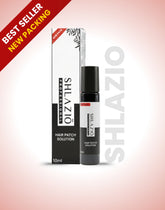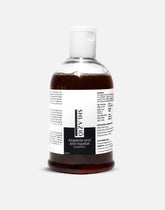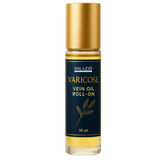Introduction
In today’s beauty market, there’s an ever-growing debate between herbal cosmetics and chemical cosmetics. The name itself suggests that herbal cosmetics are derived from natural ingredients and are free from harmful synthetic chemicals, which are often found in traditional beauty products. This difference is more than just a trend; it represents a shift towards a healthier, more sustainable approach to skincare and beauty. But what exactly sets herbal cosmetics apart from their chemical counterparts? In this blog, we’ll delve into the key differences and help you understand why choosing the right products is essential for your skin's health.
1. Ingredients: Natural vs. Synthetic
Herbal Cosmetics

Herbal cosmetics are formulated using natural ingredients, such as plant extracts, essential oils, minerals, and natural fragrances. These products often boast the benefits of being free from parabens, sulfates, synthetic dyes, and artificial fragrances. For example, ingredients like aloe vera, turmeric, and lavender are commonly found in herbal cosmetics, providing soothing, anti-inflammatory, and healing properties that are beneficial for the skin.
Chemical Cosmetics

Chemical cosmetics, on the other hand, rely heavily on synthetic ingredients, which are often created in laboratories. These products may include parabens (preservatives), synthetic fragrances, and artificial colors, which can sometimes cause irritation or allergic reactions, especially in sensitive skin types. While these ingredients can be effective in delivering quick results, they may also contribute to long-term skin issues.
2. Safety and Side Effects

Herbal Cosmetics
One of the biggest selling points of herbal cosmetics is their safety profile. Because they use natural ingredients, they are generally gentler on the skin and less likely to cause adverse reactions. Herbal products are ideal for individuals with sensitive skin, as they are formulated to nourish and protect without the harsh effects of synthetic chemicals.
Chemical Cosmetics
While chemical cosmetics can be effective, they often come with a higher risk of side effects. Some common side effects include skin irritation, redness, dryness, and, in severe cases, allergic reactions. Over time, prolonged use of products with harsh chemicals can lead to a compromised skin barrier, making your skin more susceptible to environmental damage and premature aging.
3. Environmental Impact

Herbal Cosmetics
Herbal cosmetics are not only better for your skin but also for the environment. The natural ingredients used in these products are often sustainably sourced, biodegradable, and less likely to contribute to pollution. Additionally, many herbal cosmetics come in eco-friendly packaging, further reducing their environmental footprint.
Chemical Cosmetics
Chemical cosmetics, by contrast, can have a significant environmental impact. The production of synthetic ingredients often involves the use of non-renewable resources and the release of harmful by-products into the environment. Moreover, many chemical ingredients are not biodegradable, leading to pollution of water sources and harm to aquatic life.
4. Efficacy and Results

Herbal Cosmetics
Herbal cosmetics provide gentle, long-term benefits for the skin. While they may take longer to show visible results, the effects are usually more sustainable and healthier for your skin. With consistent use, herbal products can improve skin texture, reduce signs of aging, and maintain overall skin health without the risk of chemical buildup.
Chemical Cosmetics
Chemical cosmetics are known for delivering fast, noticeable results. Ingredients like retinoids, peptides, and hydroxy acids are highly effective in addressing specific skin concerns, such as wrinkles, hyperpigmentation, and acne. However, these quick fixes can sometimes come at the cost of skin health, leading to issues like sensitivity and irritation over time.
5. Popularity and Trends

Herbal Cosmetics
In recent years, the popularity of herbal cosmetics has surged, driven by consumer demand for clean, natural, and organic beauty products. As people become more aware of the potential dangers of synthetic chemicals, they are increasingly turning to herbal alternatives that promise safety and efficacy. The trend towards “clean beauty” is more than just a fad; it reflects a growing movement towards mindful, health-conscious living.
Chemical Cosmetics
While chemical cosmetics still dominate much of the beauty industry, there is a noticeable shift as consumers seek out products that align with their values of health and sustainability. However, many chemical-based products remain popular due to their proven effectiveness and the extensive research backing their claims.
Conclusion
The choice between herbal cosmetics and chemical cosmetics ultimately comes down to personal preference and skin type. Herbal cosmetics offer a natural, gentle approach to skincare, ideal for those who prioritize safety and sustainability. On the other hand, chemical cosmetics provide fast, targeted results, but may come with potential side effects and environmental concerns. At [Your Brand Name], we believe in the power of nature to nurture your skin, which is why our products are crafted with the finest herbal ingredients to help you achieve beautiful, healthy skin naturally.







